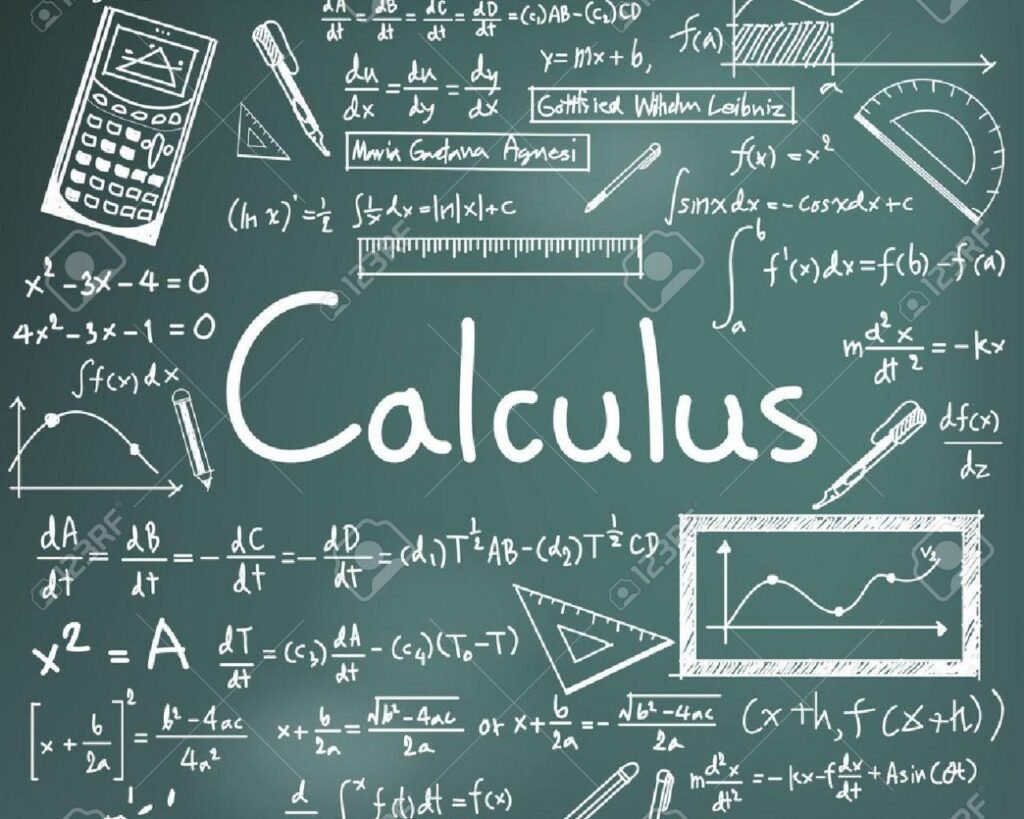Mastering Calculus: A Beginner’s Guide

Welcome to the world of calculus! Whether you’re a student diving into your first calculus course or someone revisiting the subject after some time away, this blog aims to demystify calculus and guide you through its fundamental concepts and techniques.
What is Calculus?
Calculus is the mathematical study of change. It provides a framework for understanding rates of change, accumulation of quantities, and the behavior of functions. Developed independently by Isaac Newton and Gottfried Wilhelm Leibniz in the 17th century, calculus has since become an essential tool in fields ranging from physics and engineering to economics and biology.
Getting Started: Basic Concepts
1. Functions and Limits
- Functions: A function f(x)f(x)f(x) relates an input xxx to an output f(x)f(x)f(x). Examples include f(x)=x2f(x) = x^2f(x)=x2 and g(t)=sin(t)g(t) = \sin(t)g(t)=sin(t).
- Limits: The limit of a function f(x)f(x)f(x) as xxx approaches a certain value aaa, denoted as limx→af(x)\lim_{x \to a} f(x)limx→af(x), describes the behavior of f(x)f(x)f(x) near aaa.
2. Differentiation
- Derivatives: The derivative of a function f(x)f(x)f(x), denoted f′(x)f'(x)f′(x) or dfdx\frac{df}{dx}dxdf, represents its instantaneous rate of change. For instance, if f(x)=x2f(x) = x^2f(x)=x2, then f′(x)=2xf'(x) = 2xf′(x)=2x.
- Rules of Differentiation:
- Power rule: ddx[xn]=nxn−1\frac{d}{dx}[x^n] = nx^{n-1}dxd[xn]=nxn−1
- Product rule: ddx[uv]=u′v+uv′\frac{d}{dx}[uv] = u’v + uv’dxd[uv]=u′v+uv′
- Chain rule: ddx[f(g(x))]=f′(g(x))⋅g′(x)\frac{d}{dx}[f(g(x))] = f'(g(x)) \cdot g'(x)dxd[f(g(x))]=f′(g(x))⋅g′(x)
3. Applications of Derivatives
- Optimization: Finding maximum and minimum values of functions.
- Rates of Change: Determining rates of change of quantities.
- Graphical Analysis: Analyzing the behavior of functions using derivatives.
4. Integration
- Antiderivatives: An antiderivative F(x)F(x)F(x) of a function f(x)f(x)f(x) is a function whose derivative is f(x)f(x)f(x). If F′(x)=f(x)F'(x) = f(x)F′(x)=f(x), then F(x)F(x)F(x) is an antiderivative of f(x)f(x)f(x).
- Definite and Indefinite Integrals:
- Indefinite integral: ∫f(x) dx=F(x)+C\int f(x) \, dx = F(x) + C∫f(x)dx=F(x)+C
- Definite integral: ∫abf(x) dx\int_a^b f(x) \, dx∫abf(x)dx computes the accumulated area under f(x)f(x)f(x) from aaa to bbb.
5. Applications of Integration
- Area Under a Curve: Calculating areas using definite integrals.
- Volume and Length: Finding volumes of solids of revolution and lengths of curves.
- Physical Applications: Solving problems in physics involving work, fluid pressure, and more.
Tips for Learning Calculus
- Practice Regularly: Calculus is best learned through practice. Work on problems from your textbook or online resources to reinforce your understanding.
- Understand the Why: Don’t just memorize formulas; understand why they work and how they relate to the concepts of calculus.
- Seek Help When Needed: If you’re struggling with a concept, don’t hesitate to seek help from your instructor, classmates, or online tutorials.
- Explore Applications: Explore how calculus is applied in various fields. Understanding real-world applications can make the abstract concepts more tangible.
Conclusion
Calculus is a powerful tool for understanding change and dynamics in the world around us. By mastering its core concepts of differentiation and integration, you’ll gain a deeper insight into how things change and interact. Embrace the challenges and enjoy the journey of learning calculus—it opens doors to a wide range of exciting possibilities in science, engineering, economics, and beyond.
Happy calculating!
A bonus Quiz
[ays_quiz id=’9′]





Hey people!!!!!
Good mood and good luck to everyone!!!!!
Hey people!!!!!
Good mood and good luck to everyone!!!!!